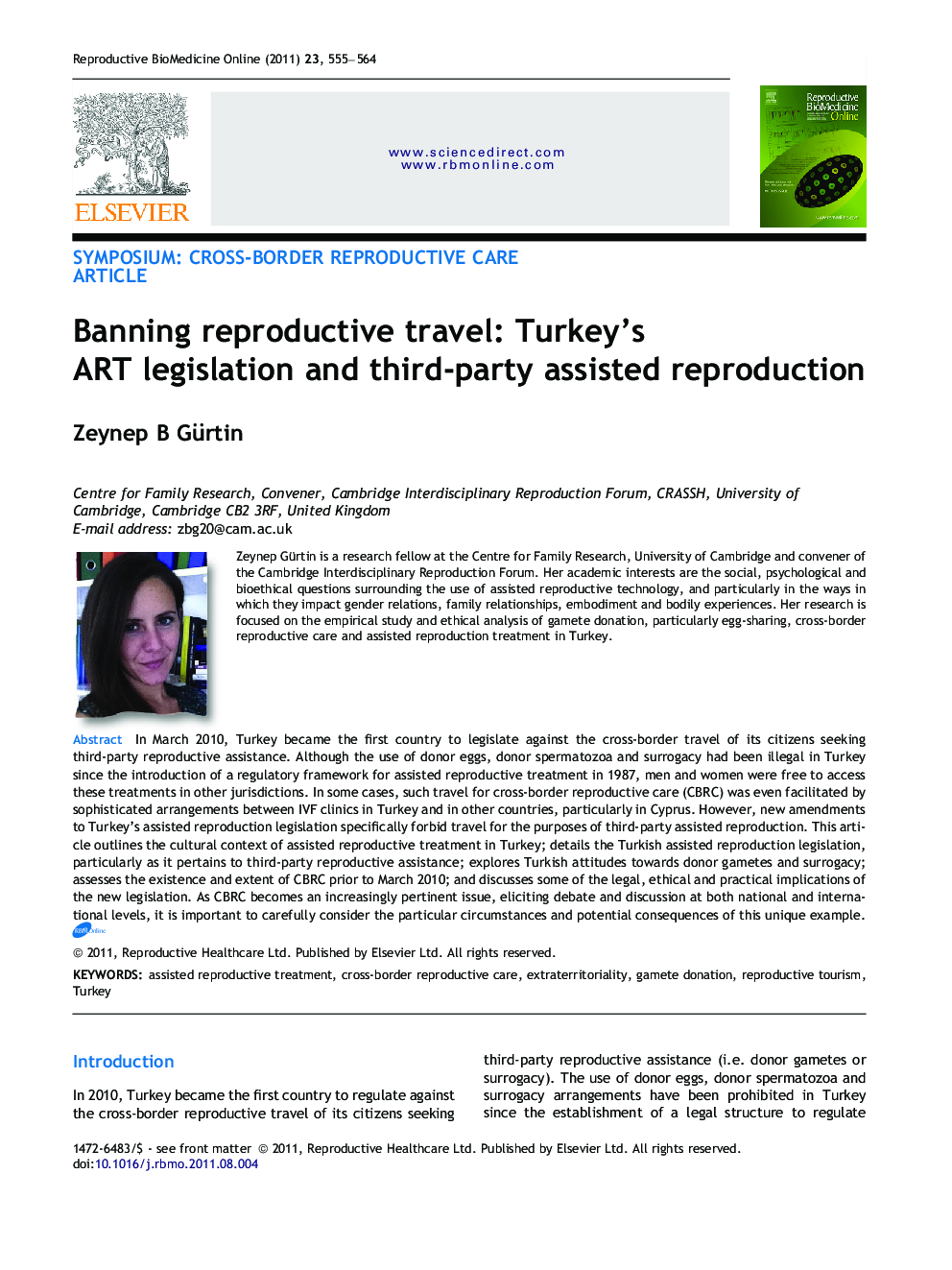| کد مقاله | کد نشریه | سال انتشار | مقاله انگلیسی | نسخه تمام متن |
|---|---|---|---|---|
| 3971330 | 1256761 | 2011 | 10 صفحه PDF | دانلود رایگان |

In March 2010, Turkey became the first country to legislate against the cross-border travel of its citizens seeking third-party reproductive assistance. Although the use of donor eggs, donor spermatozoa and surrogacy had been illegal in Turkey since the introduction of a regulatory framework for assisted reproductive treatment in 1987, men and women were free to access these treatments in other jurisdictions. In some cases, such travel for cross-border reproductive care (CBRC) was even facilitated by sophisticated arrangements between IVF clinics in Turkey and in other countries, particularly in Cyprus. However, new amendments to Turkey’s assisted reproduction legislation specifically forbid travel for the purposes of third-party assisted reproduction. This article outlines the cultural context of assisted reproductive treatment in Turkey; details the Turkish assisted reproduction legislation, particularly as it pertains to third-party reproductive assistance; explores Turkish attitudes towards donor gametes and surrogacy; assesses the existence and extent of CBRC prior to March 2010; and discusses some of the legal, ethical and practical implications of the new legislation. As CBRC becomes an increasingly pertinent issue, eliciting debate and discussion at both national and international levels, it is important to carefully consider the particular circumstances and potential consequences of this unique example.Recently, Turkey became the first country to legislate the cross-border reproductive travel of its citizens seeking third-party reproductive assistance. Although the use of donor eggs, donor spermatozoa and surrogacy had been illegal in Turkey since the introduction of a regulatory framework for assisted reproductive technology in 1987, men and women were free to access these treatments in other jurisdictions. In some cases, such travel for cross-border reproductive care (CBRC) was even facilitated by sophisticated arrangements between IVF clinics in Turkey and in other countries, particularly in Cyprus. However, new amendments to Turkey’s assisted reproduction legislation, introduced in March 2010, specifically forbid reproductive travel for the purposes of third-party assisted reproduction. This article outlines the cultural context of assisted reproductive treatment in Turkey; details the Turkish assisted reproduction legislation, particularly as it pertains to third-party reproductive assistance; explores Turkish attitudes towards donor gametes and surrogacy; assesses the existence and extent of CBRC prior to March 2010; and discusses some of the legal, ethical and practical implications of the new legislation. As CBRC becomes an increasingly pertinent issue, eliciting debate and discussion at both national and international levels, it is important to carefully consider the particular circumstances and potential consequences of this unique example.
Journal: Reproductive BioMedicine Online - Volume 23, Issue 5, November 2011, Pages 555–564